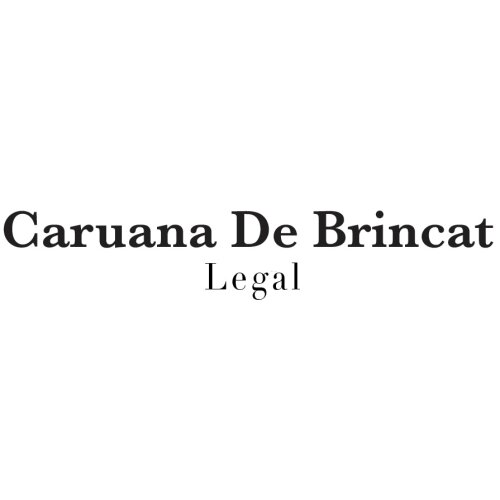Best Housing, Construction & Development Lawyers in Malta
Share your needs with us, get contacted by law firms.
Free. Takes 2 min.
Free Guide to Hiring a Real Estate Lawyer
Or refine your search by selecting a city:
List of the best lawyers in Malta
About Housing, Construction & Development Law in Malta
Housing, Construction & Development Law in Malta encompasses a wide range of legal matters pertaining to residential, commercial, and infrastructure development. This includes laws and regulations on property acquisition, construction regulations, environmental considerations, and urban planning. Malta's legal framework ensures orderly development, safety, and sustainability, aligning with both European Union regulations and local policies. The rapid economic growth and increasing demands for housing and commercial spaces necessitate a robust legal system to manage the complexities of property and development practices.
Why You May Need a Lawyer
There are numerous situations where individuals and businesses might require legal assistance in the fields of Housing, Construction & Development in Malta. These include situations such as buying or selling property, navigating construction permits, resolving disputes over land use, or understanding environmental compliance. Legal experts can also help negotiate contracts, represent clients in court, and ensure compliance with complex regulatory frameworks. Whether you are a landlord, tenant, developer, or homeowner, legal advisors ensure your interests are protected and all actions conform with the law.
Local Laws Overview
The legal framework governing housing, construction, and development in Malta involves various key legislations. The Environment Planning and Development Act governs urban planning and construction regulations. The Condominium Act regulates the usage and management of condominium properties. The Rent Regulation Board addresses matters concerning landlord and tenant disputes. Additionally, EU environmental directives, which impact development and construction practices, are integrated within local policy. It's essential for stakeholders in the sector to understand these laws, as they affect property rights, development permissions, and environmental management.
Frequently Asked Questions
1. What legal processes are involved in purchasing property in Malta?
Purchasing property involves conducting due diligence, signing a promise of sale agreement (Konvenju), and finalizing the sale with a deed of sale in front of a notary. Legal advice ensures all stipulations are met, preventing future disputes.
2. How can I obtain a construction permit?
To obtain a construction permit, one must submit a development application to the Planning Authority. The application is accompanied by plans, environmental assessments, and other documents, which are reviewed before approval. Legal guidance can assist in ensuring compliance throughout the process.
3. What should I do if I encounter a property boundary dispute?
If you encounter a boundary dispute, it's crucial to consult a lawyer. They can assist in negotiations, mediation, or, if necessary, represent you in court to resolve the issue legally and fairly.
4. What are my rights as a tenant in Malta?
Tenants have the right to a written lease agreement, protection from unfair eviction, and maintenance of a habitable property. Legal advice can clarify rights and obligations under the Rent Regulation Board standards.
5. Can foreigners purchase property in Malta?
Yes, EU nationals can purchase property freely, while non-EU nationals may require an Acquisition of Immovable Property (AIP) permit. Legal advisors can help navigate these requirements efficiently.
6. What environmental regulations affect construction projects?
Construction projects in Malta must comply with various environmental regulations addressing waste management, emissions, and preservation of natural habitats. Legal expertise ensures adherence to these rules to prevent penalties.
7. How do I resolve a conflict with a contractor?
If conflicts arise with a contractor related to contract terms or project execution, legal assistance can facilitate negotiation, dispute resolution, or potential litigation to protect your interests.
8. What is the role of the Planning Authority in Malta?
The Planning Authority regulates land use, development approvals, and ensures compliance with national planning policies. Familiarity with its processes and legal representation can expedite approvals and adherence to requirements.
9. What legal obligations do I have when developing a condominium property?
Developing a condominium involves adhering to the Condominium Act, which stipulates rules for common area management, property division, and community agreements. Legal guidance ensures compliance and smooth operation.
10. What happens if I build without the necessary permits?
Building without permits can lead to severe penalties, legal action, and mandatory demolitions. A lawyer can assist in rectifying issues with potential retroactive permit applications or legal defense if needed.
Additional Resources
Several resources can provide valuable assistance when dealing with legal matters in housing, construction, and development:
- The Planning Authority of Malta for guidelines and applications.
- The Rent Regulation Board for tenant and landlord disputes.
- The Chamber of Commerce for business-related property concerns.
- Legal aid services for cost-effective legal consultation and representation.
Next Steps
If you require legal advice, the first step is to consult with a qualified lawyer specializing in Housing, Construction & Development. You can start by identifying legal experts through referrals, online searches, or contacting the Malta Chamber of Advocates for a directory of certified professionals. Prepare all necessary documents, outline your objectives, and approach consultations with clarity on the specific issues you are facing. This preparation will enable your legal advisor to provide precise and efficient assistance to protect and advocate for your interests.
Lawzana helps you find the best lawyers and law firms in Malta through a curated and pre-screened list of qualified legal professionals. Our platform offers rankings and detailed profiles of attorneys and law firms, allowing you to compare based on practice areas, including Housing, Construction & Development, experience, and client feedback.
Each profile includes a description of the firm's areas of practice, client reviews, team members and partners, year of establishment, spoken languages, office locations, contact information, social media presence, and any published articles or resources. Most firms on our platform speak English and are experienced in both local and international legal matters.
Get a quote from top-rated law firms in Malta — quickly, securely, and without unnecessary hassle.
Disclaimer:
The information provided on this page is for general informational purposes only and does not constitute legal advice. While we strive to ensure the accuracy and relevance of the content, legal information may change over time, and interpretations of the law can vary. You should always consult with a qualified legal professional for advice specific to your situation.
We disclaim all liability for actions taken or not taken based on the content of this page. If you believe any information is incorrect or outdated, please contact us, and we will review and update it where appropriate.
Browse housing, construction & development law firms by city in Malta
Refine your search by selecting a city.

















